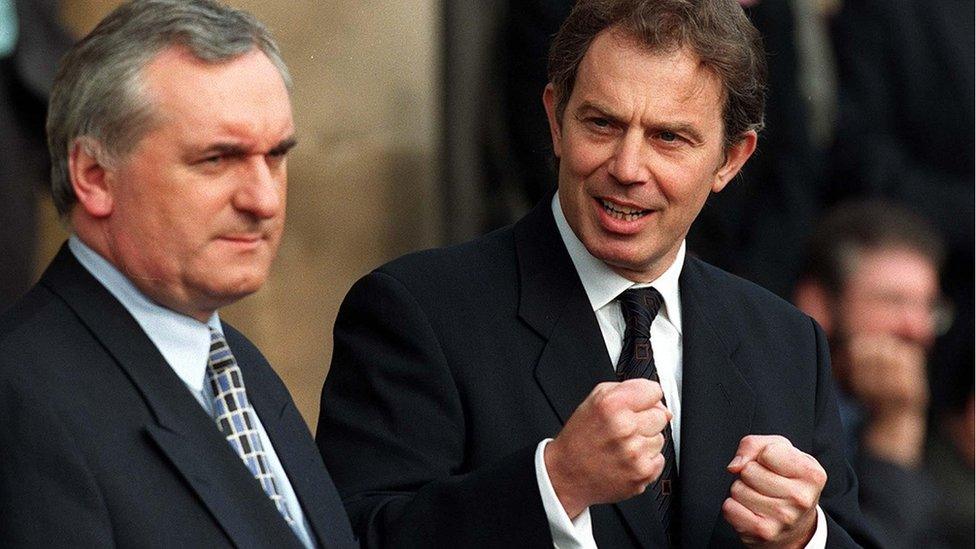Good Friday Agreement: The Derry man who announced peace deal history
- Published
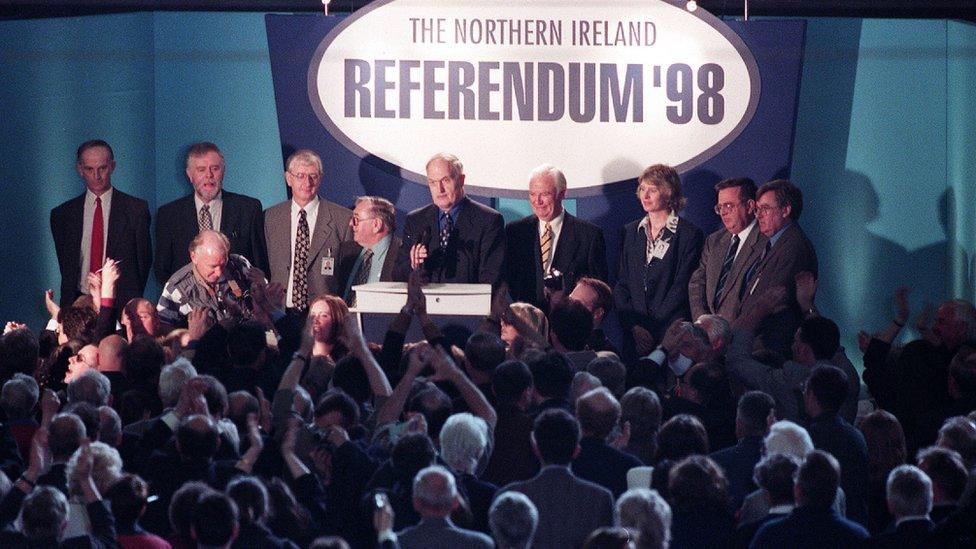
The Good Friday Agreement referendum result was announced at the King's Hall by Pat Bradley
It was a moment heard around the world ratifying arguably the most famous peace deal in the world.
More than 70% of people in Northern Ireland had voted in favour of the Good Friday Agreement in a referendum in May 1998.
The 30-year conflict of the Troubles was being brought to an end.
And it was a Londonderry man, proud still of his small part in history, who made that announcement.
Former Northern Ireland chief electoral officer Pat Bradley was the face and voice of a moment in history that went around the world.
It was a result that, he said, was met with astonishing noise.
"Before I read that sentence I could feel the tension in the room," he told BBC Radio Foyle.
Mr Bradley was appointed deputy electoral officer in 1974 and then chief electoral officer for Northern Ireland in 1980.
He took centre stage, result in hand, as those in Belfast's King's Hall and around the world watched on for a moment that would alter the course of political history in Northern Ireland.
"I was calm and collected because I knew I had to do the job that I was assigned to do," Mr Bradley said.
"If I take a job on, I want to do it properly, I was not nervous but I was more concerned about what the reaction would be of the audience to my announcement."

More on the Good Friday Agreement.
EXPLAINER: What is the Good Friday Agreement?
BACKGROUND: How did the agreement come about?, external
ANALYSIS: The political road to Good Friday

For Mr Bradley, there was some apprehension.
"I was scared that the result may not have been accepted - we had hundreds of people packed in there from around the world and my concern was if the result was not acceptable to some people there would be problems."
However, despite his concerns, he knew he could do nothing to control people's reactions but could only carry out his duty.
"I just walked up on stage and said: 'I hereby give notice that the percentage votes given at the referendum was as follows, Yes - 71.12% and the percentage for No was 28.88 %.'
"That figure is embossed into my mind and into my soul," he added.
"I saw a cheer from one side, but I saw no negativity from the other side, so that was a good thing."
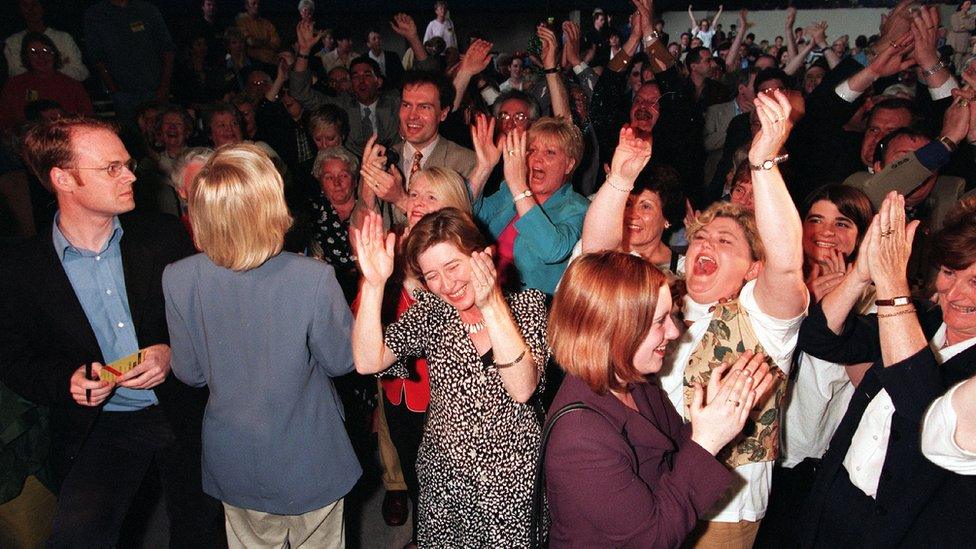
The announcement of the referendum result brought cheers and rapturous applause from sections of the crowd
Mr Bradley said he did not really get a chance to reflect much of the significance of the result that day because he was so tired after putting in the hours to ensure the vote and announcement ran smoothly.
He said that both himself and the police stayed with the ballot boxes all through the night to ensure there was no suggestion of foul play that could put the result in jeopardy.
"I didn't want any hints or any innuendo that the boxes had been tampered with - I didn't want anybody to say that something was done," he said.
"I stayed up all night until my staff came in just prior to the count - I had been going non-stop for about 40 hours.
"After the result that day, I drove home to Derry and had to stop four or five times to get a cup of coffee."
Mr Bradley was awarded an MBE in 1986 and a CBE in 1999, both for services to the electoral process.
"I am not a proud man, but I am very proud of what I done that day," he said.
He said, even 25 years on, the Good Friday Agreement still stands up to this day because it was welcomed by a majority - and he believes it still is.
The story behind the "defining image" of the Good Friday Agreement
"I organised, supervised the count and I know it was done perfectly right and correct," he said.
"It was a success, not only in a personal sense, but a success for Northern Ireland because we got peace.
"In the 1990s right on through to that referendum, there was a desire among different parts of the community to get peace.
"We could build up a society to encourage everyone to come together and have a better life for all of us."


Declan Harvey and Tara Mills explore the text of the Good Friday Agreement - the deal which heralded the end of the Troubles in Northern Ireland.
They look at what the Agreement actually said and hear from some of the people who helped get the deal across the line.
Click here to listen to the full box set on BBC Sounds.

Related topics
- Published31 March 2023
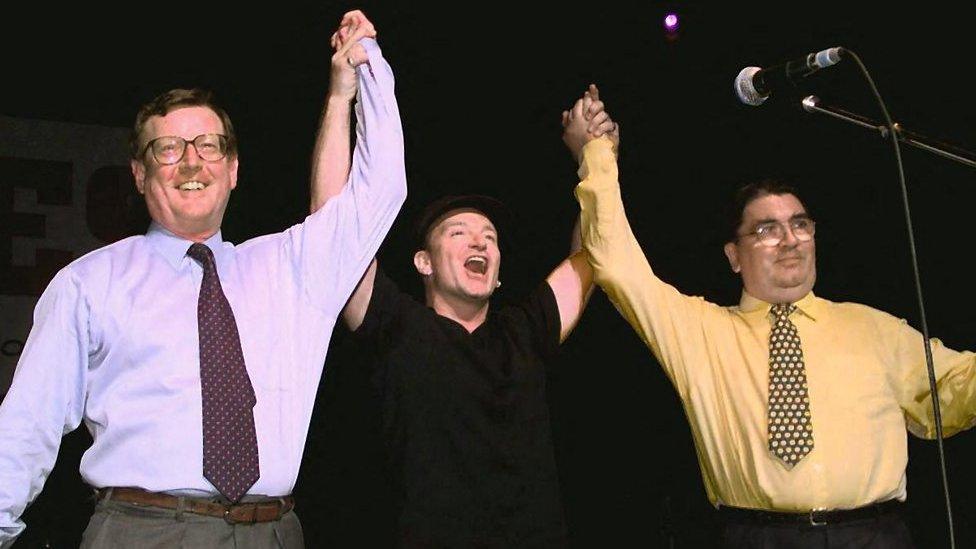
- Published3 April 2023
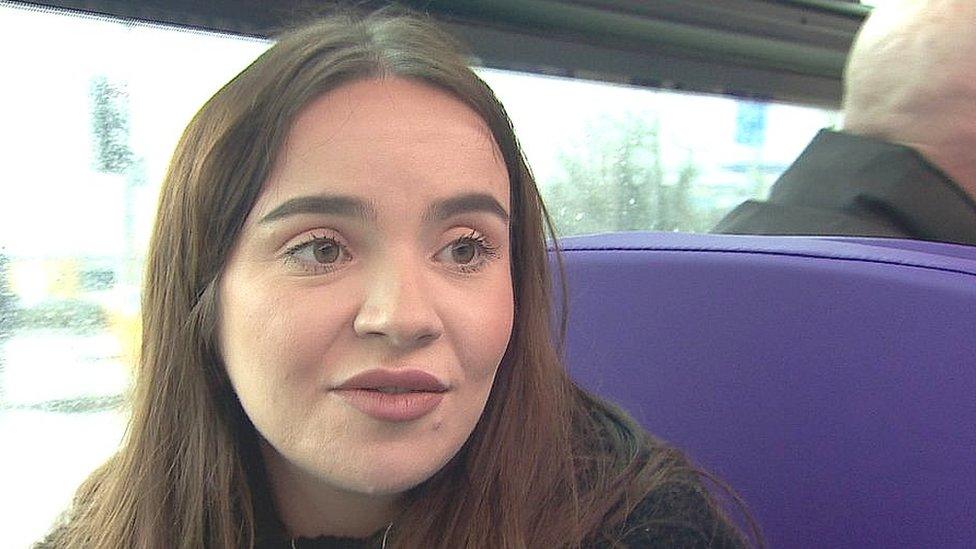
- Published3 April 2023
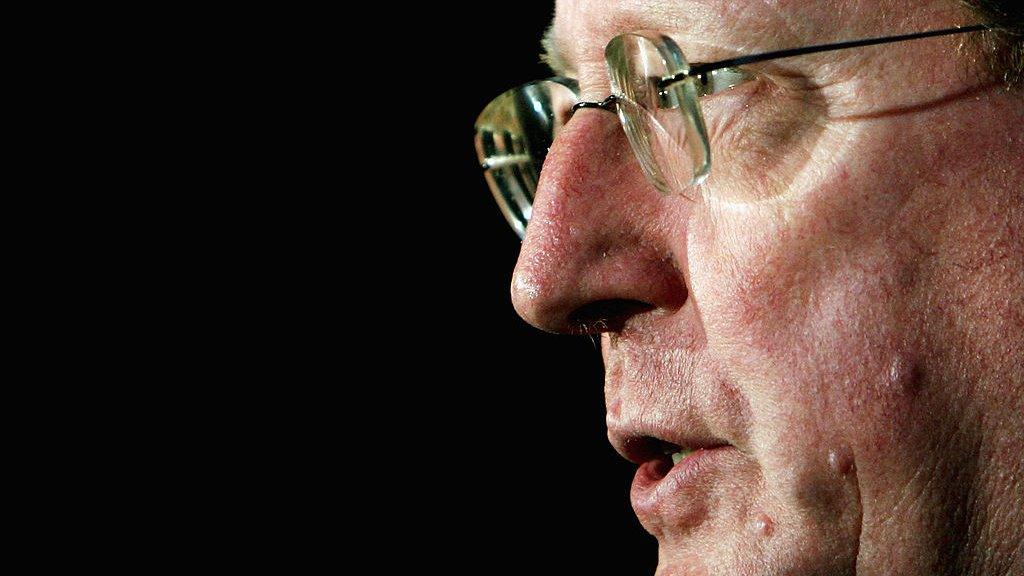
- Published16 February 2023
